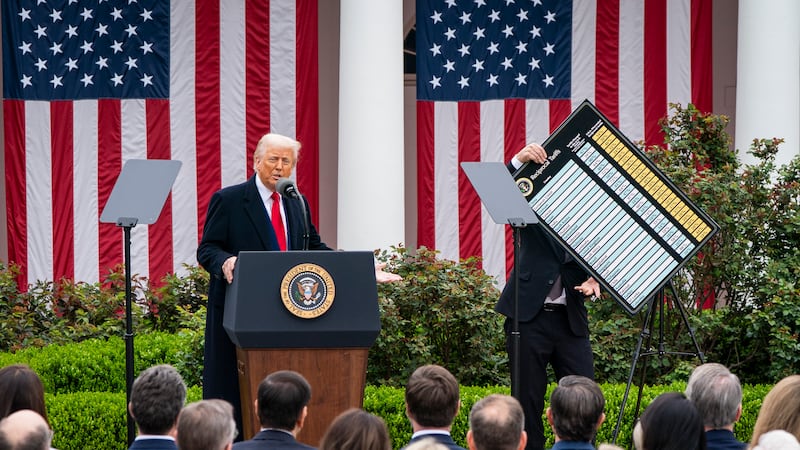The European Union (EU) has warned the Republic that it must introduce new rules to speed up planning approval and other permits for green energy projects into Irish law.
All EU member states had to make the revised Renewable Energy Directive 2023/2413, which streamlines green energy permitting, part of their own laws by July 1st this year.
However, only Denmark told the commission that it had enacted the directive’s provisions, while all other 26, including the Republic, had failed to do so.
The commission formally told the State this week that it had transposed the new rules into Irish law, giving it two months to respond.
RM Block
The directive’s provisions simplify and accelerate permit granting procedures for renewable energy projects, such as wind and solar farms, and the infrastructure needed to ensure they can supply electricity. They also include clear time limits for granting permission to proposed green energy power plants.
The directive covers “all relevant administrative permits” to build and operate renewable energy plants.
The procedure for granting permits must start within 45 days of a State authority receiving a full application, while countries must also designate contacts to guide applicants through the various procedures.
Member states must also ensure that administrative or judicial appeals involving permission given to renewable energy projects are dealt with quickly.
Irish energy industry groups consistently warn that delays in getting planning permission and connections to the national grid hinder efforts to build wind and solar farms and threaten the State’s ability to meet green energy targets that are key to its climate plan.
A spokesman for the Department of Environment, Climate and Communications said implementing the directive required complex changes, adding that every effort was being made to do this.
Kevin O’Donovan, managing director of Statkraft Ireland, the local unit of the Norwegian renewable energy giant, welcomed the EU Commission’s move and added that he hoped the Republic would comply.
He pointed out that Europe had adopted “powerful measures” to support renewable energy’s development. “Currently the permitting process is beset by delays and the uncertainty of the planning system means it is difficult for Ireland to reduce its reliance on fossil fuels,” he said.
Mr O’Donovan acknowledged that the Government had made progress in outlining clear policies to achieve net zero carbon.
“But now is the time for implementation,” he declared. “To meet our targets, avoid EU fines, it is vital that those who develop renewable energy have a stable, efficient and reliable consenting environment.”
Statkraft plans to build wind and solar projects capable of generating up to 3,000 mega watts (MW) of electricity in the Republic. The proposals include power plants with total capacity of 400MW for which the company has succeeded in getting planning permission and further facilities capable of generating 375MW for which it is seeking permission from An Bord Pleanála.
The Commission for the Regulation of Utilities recently announced proposals that from next year should speed up applications for connection to the national electricity grid, a move welcomed by industry group Wind Energy Ireland.
The European Parliament and Council of Ministers approved directive 2023/2413 last year to bolster efforts to increase the use of renewable energy across the bloc.
The EU moved to accelerate the rate at which new green electricity projects are built in the wake of Russia’s invasion of Ukraine in February 2022, which sparked a sharp rise in energy costs, aggravating already growing inflation. The union wants to end its heavy dependence on natural gas imports from Russia.
- Sign up for the Business Today newsletter and get the latest business news and commentary in your inbox every weekday morning
- Opt in to Business push alerts and have the best news, analysis and comment delivered directly to your phone
- Join The Irish Times on WhatsApp and stay up to date
- Our Inside Business podcast is published weekly – Find the latest episode here



















